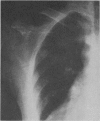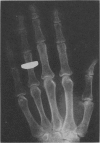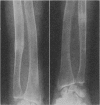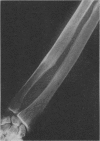Abstract
Severe osteomalacia of uncertain etiology was observed in a 44-year-old woman. There was no evidence of chronic renal insufficiency, malabsorption, or of the renal tubular defects classically associated with osteomalacia. However, the dietary history suggested vitamin D deficiency and most of the biochemical findings were compatible with this condition. The unusual feature of the case was a decrease in plasma bicarbonate levels which appeared to be due to a lowered renal tubular threshold for bicarbonate reabsorption. There was no renal tubular defect with respect to hydrogen ion excretion.
Rapid symptomatic and radiologic improvement occurred when the dietary intake of vitamin D was increased to approximately 200 I.U. per day and the acidosis was simultaneously corrected with sodium bicarbonate. Although no firm conclusions could be drawn about the relative importance of vitamin D deficiency or chronic acidosis in the production of the osteomalacia, the possibility that the chronic acidosis may have been a major contributing factor is discussed.
Full text
PDF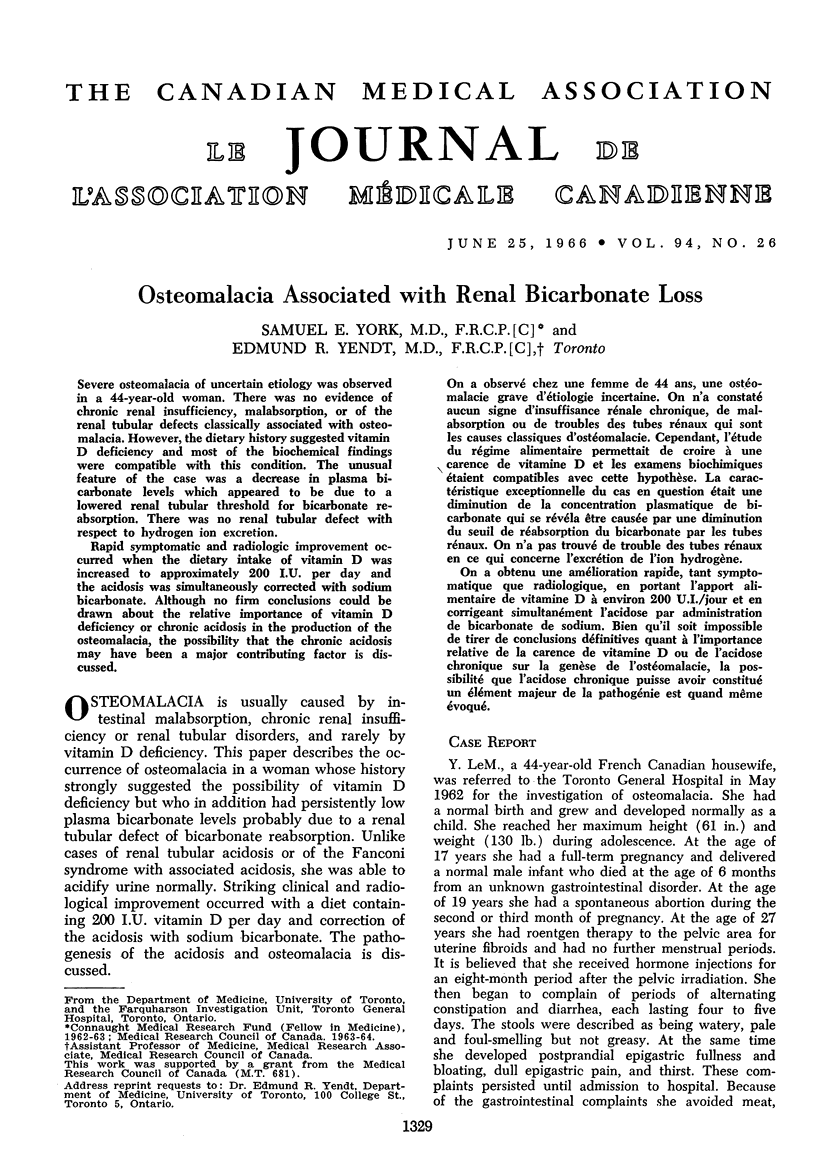
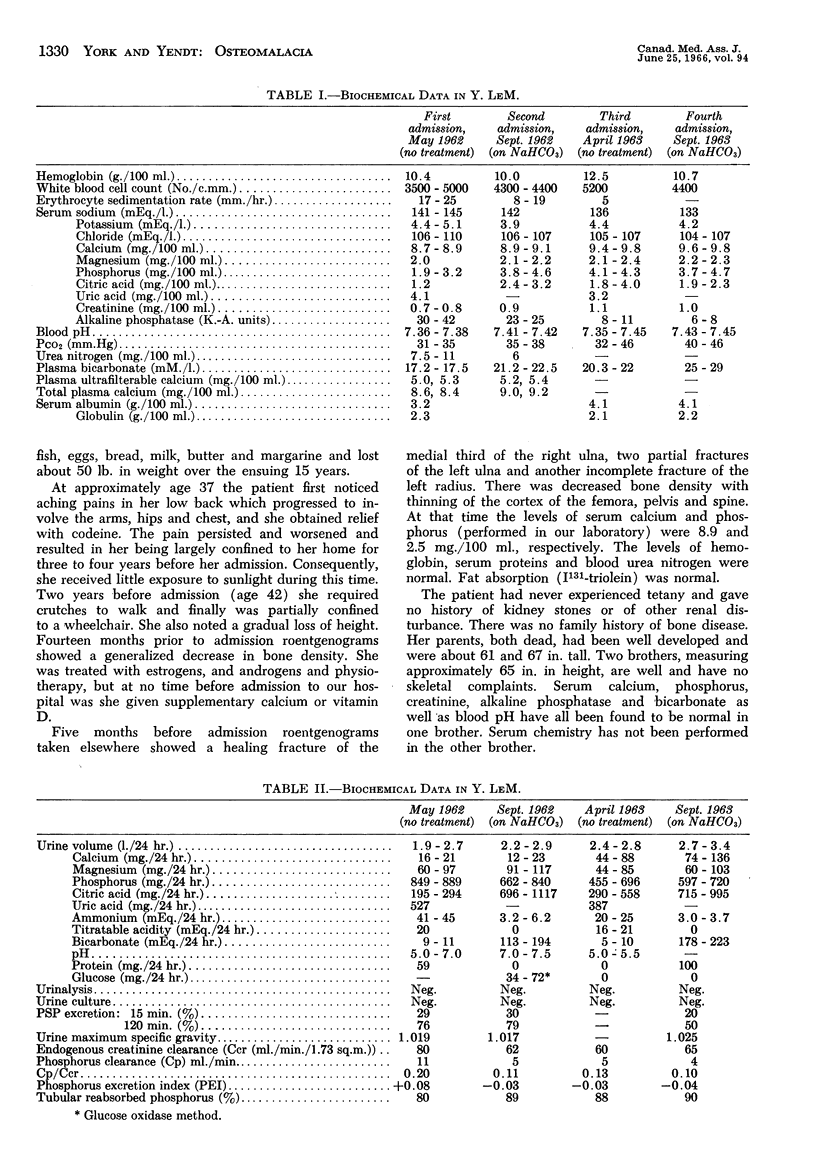
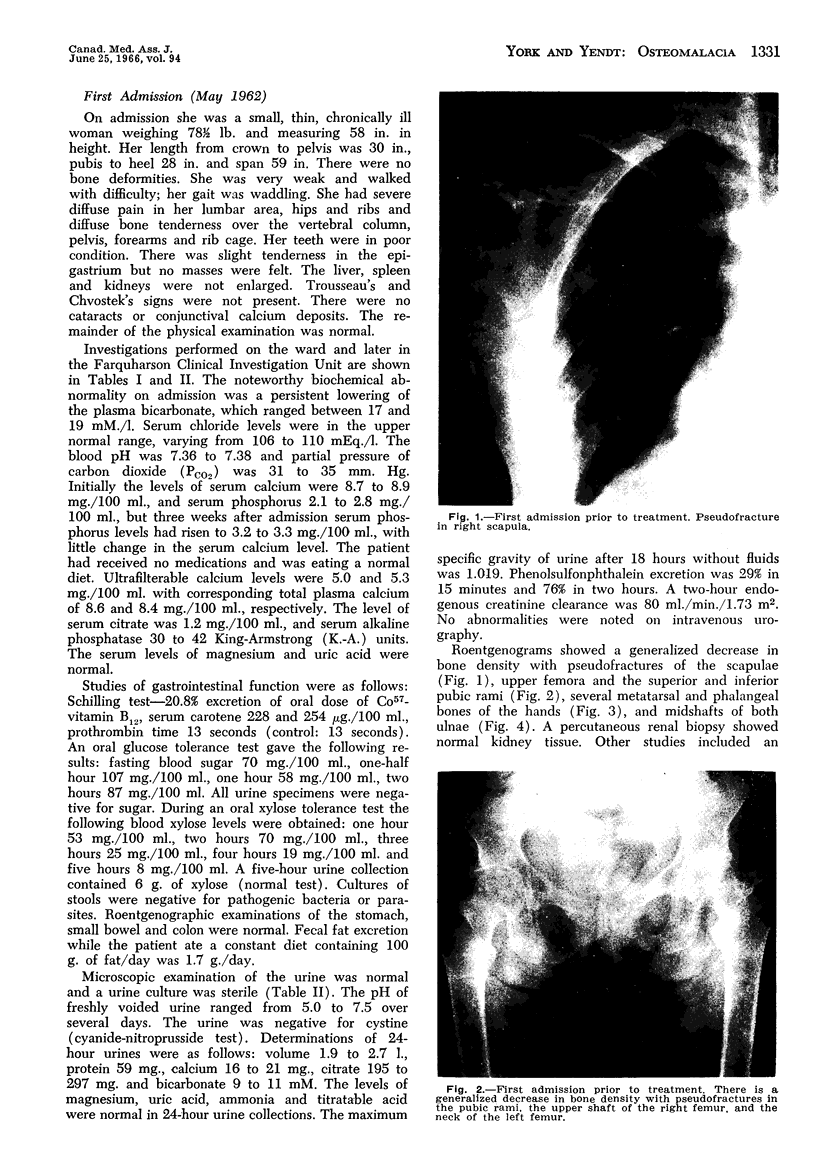
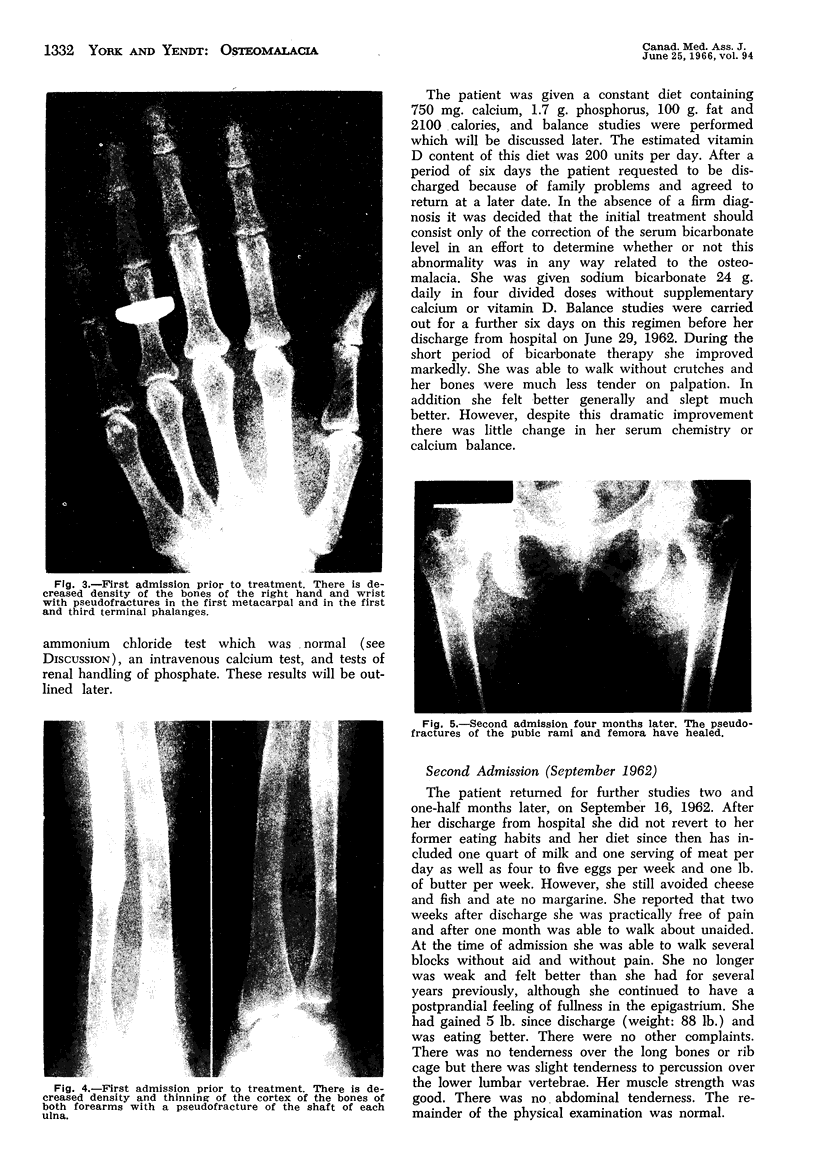
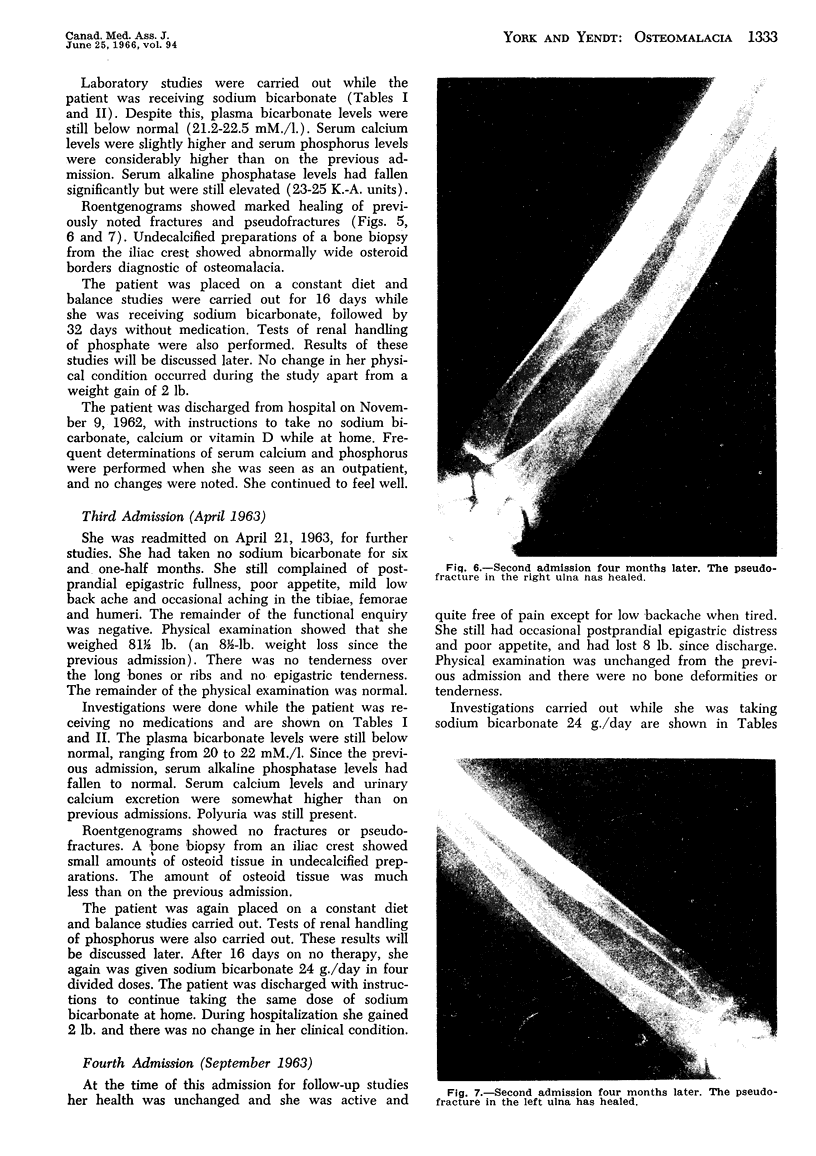
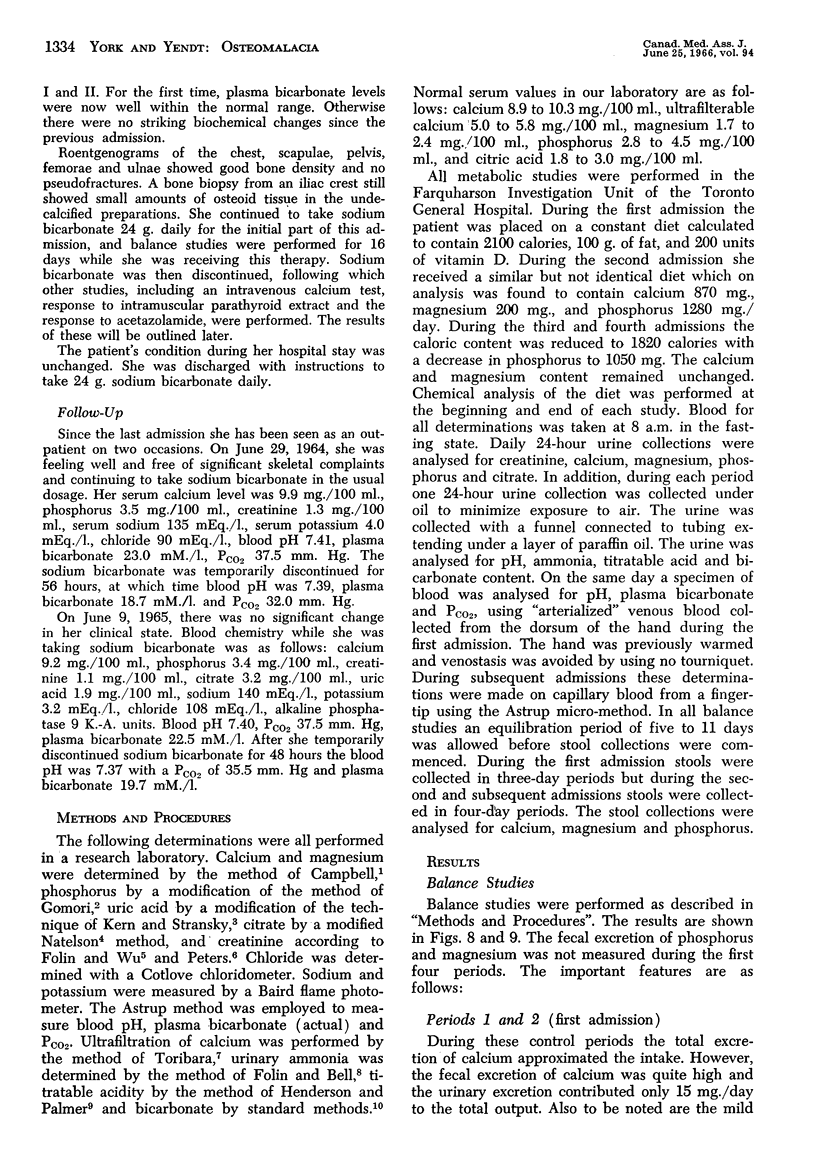
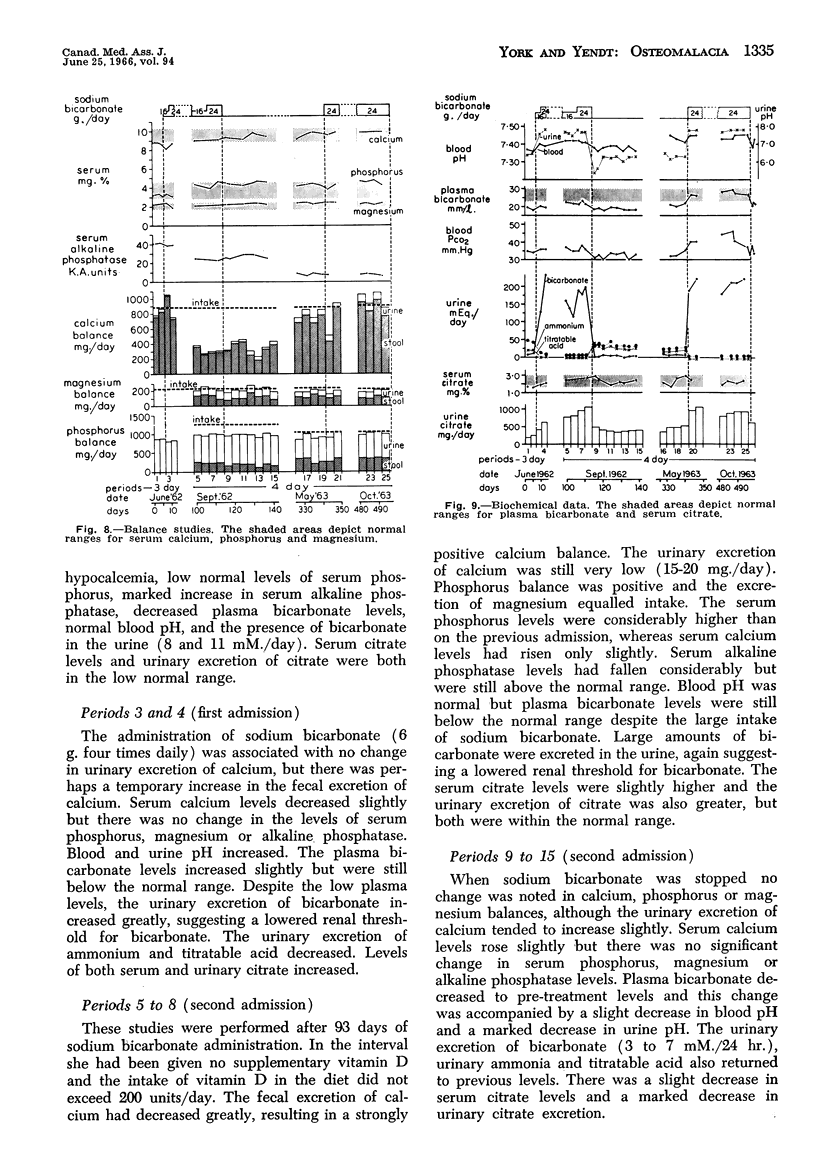
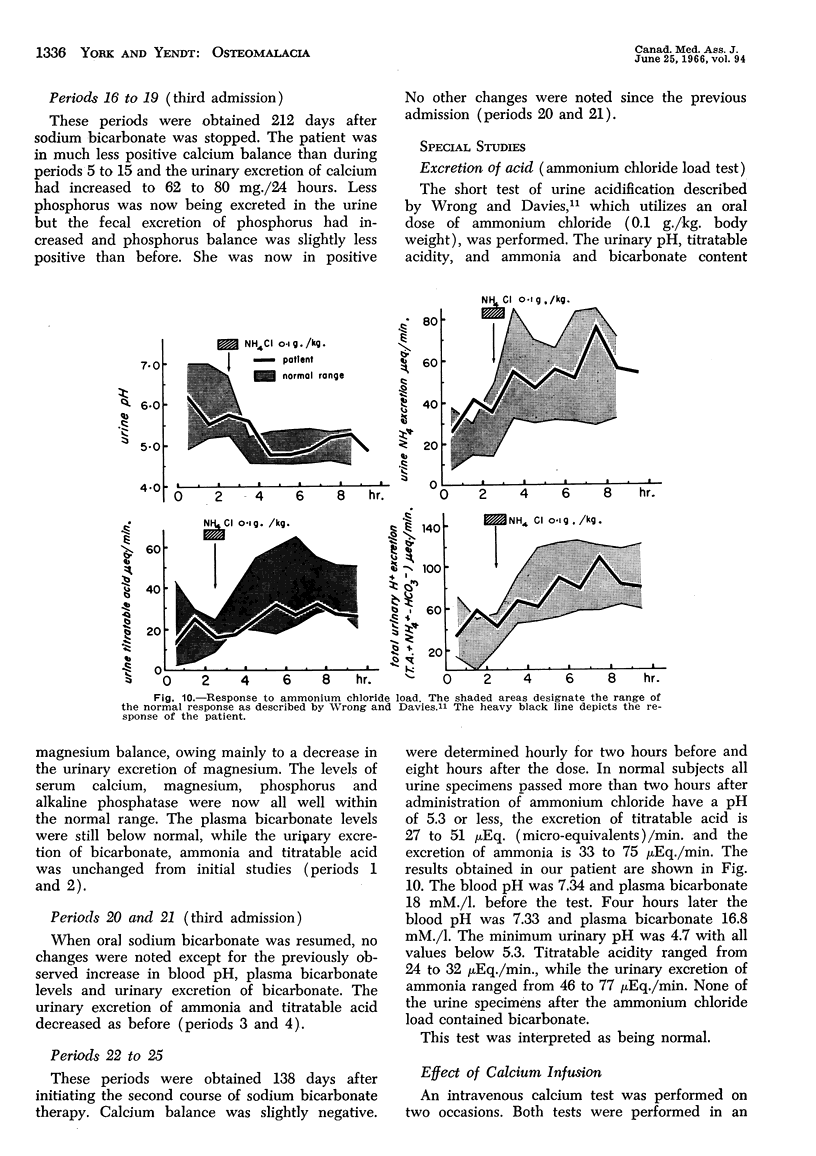
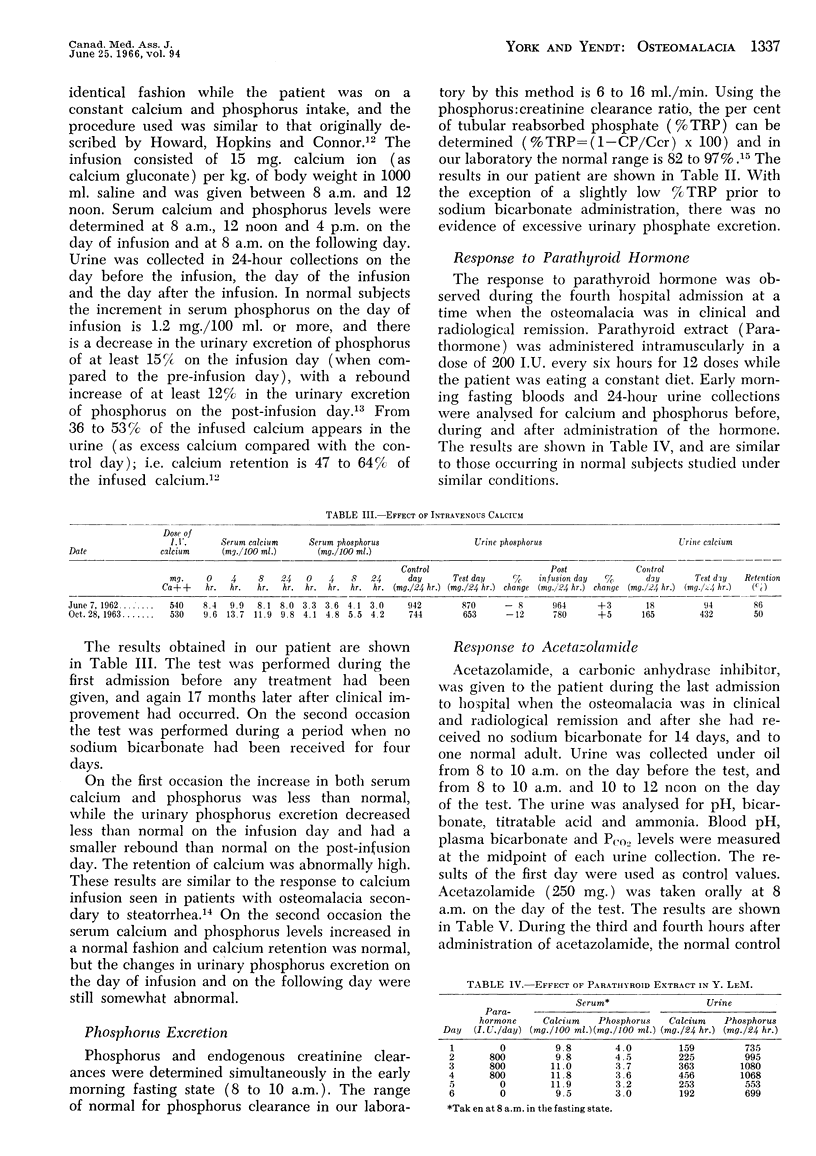
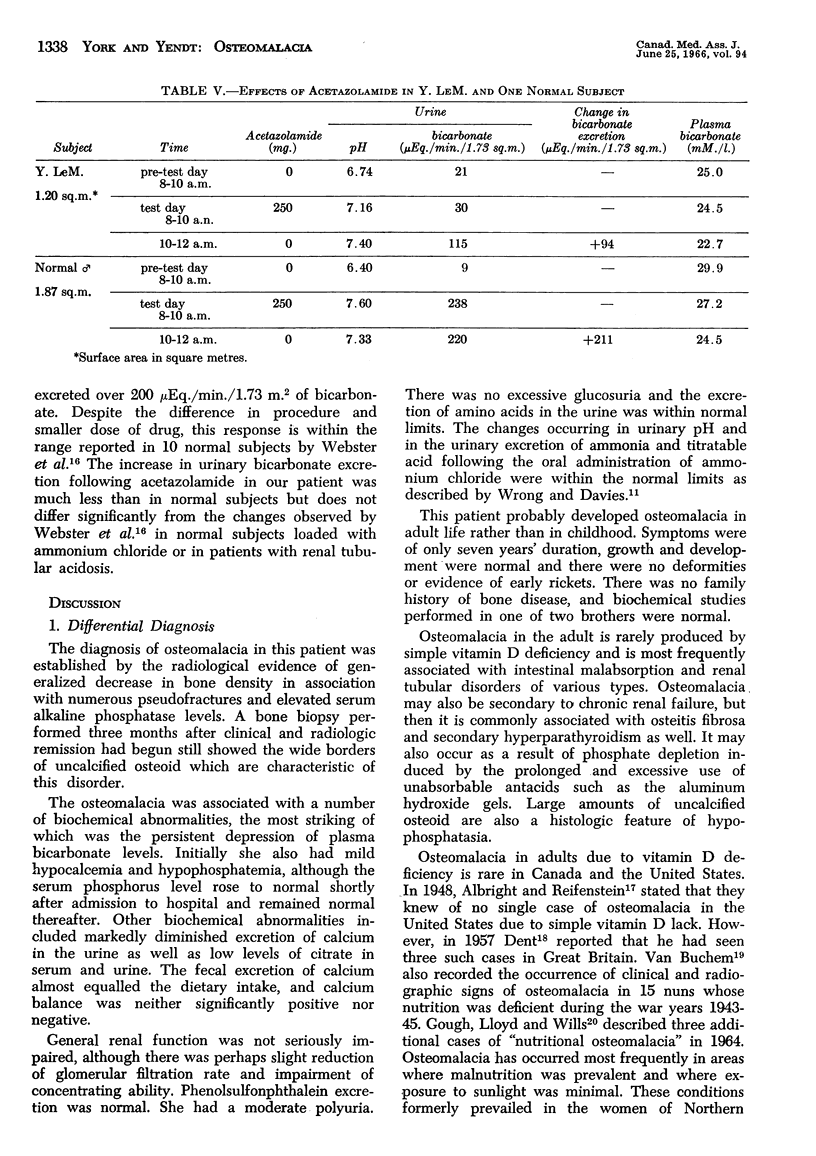
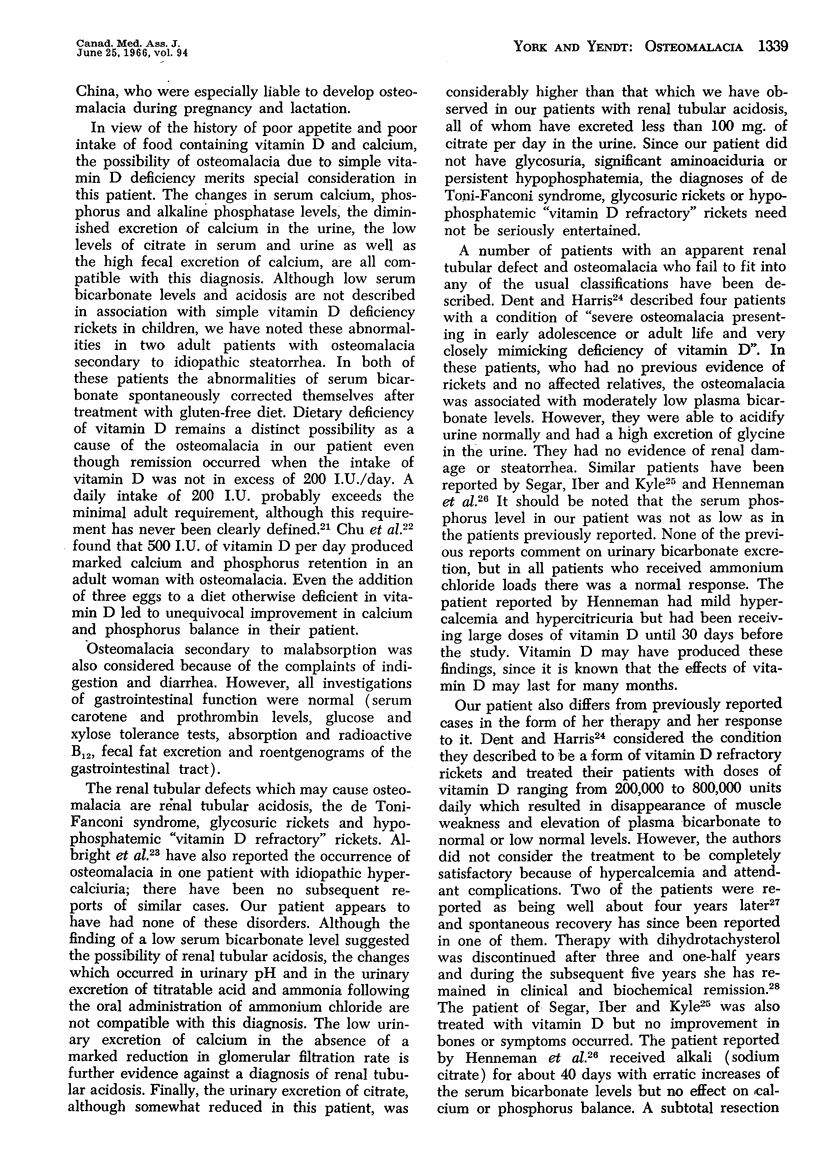
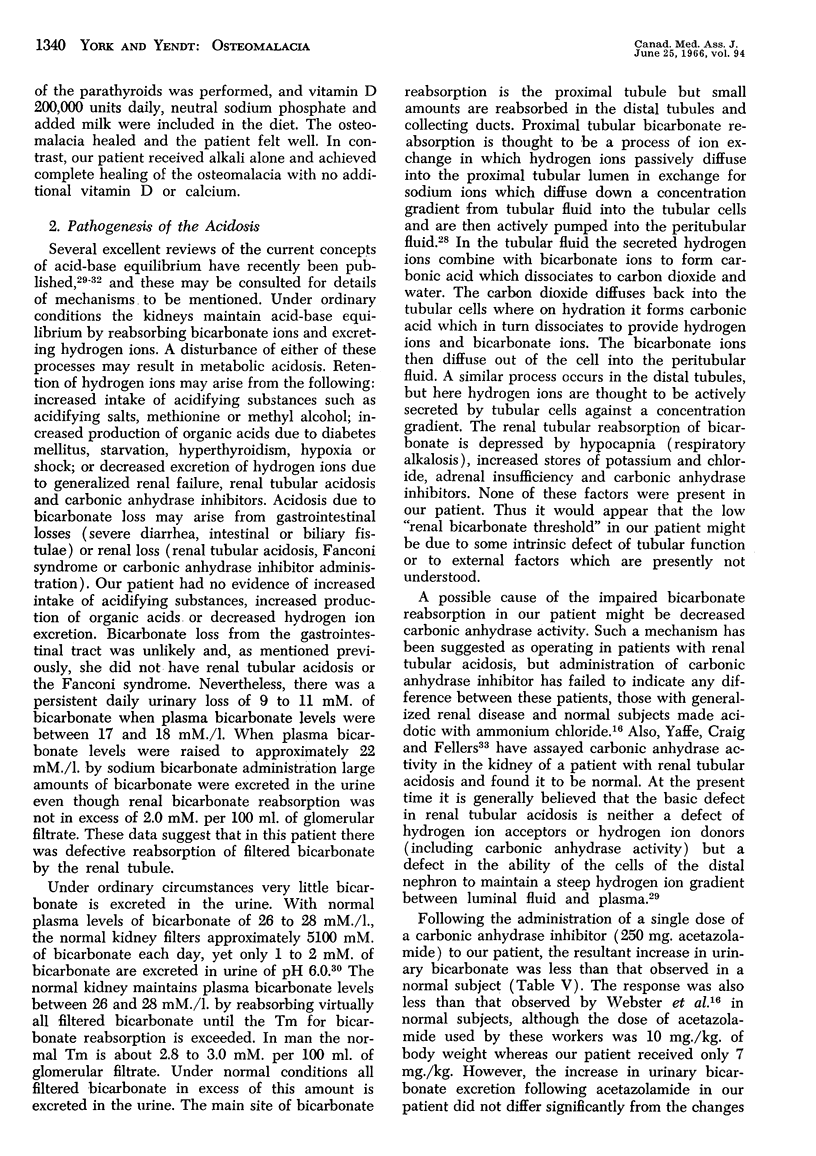
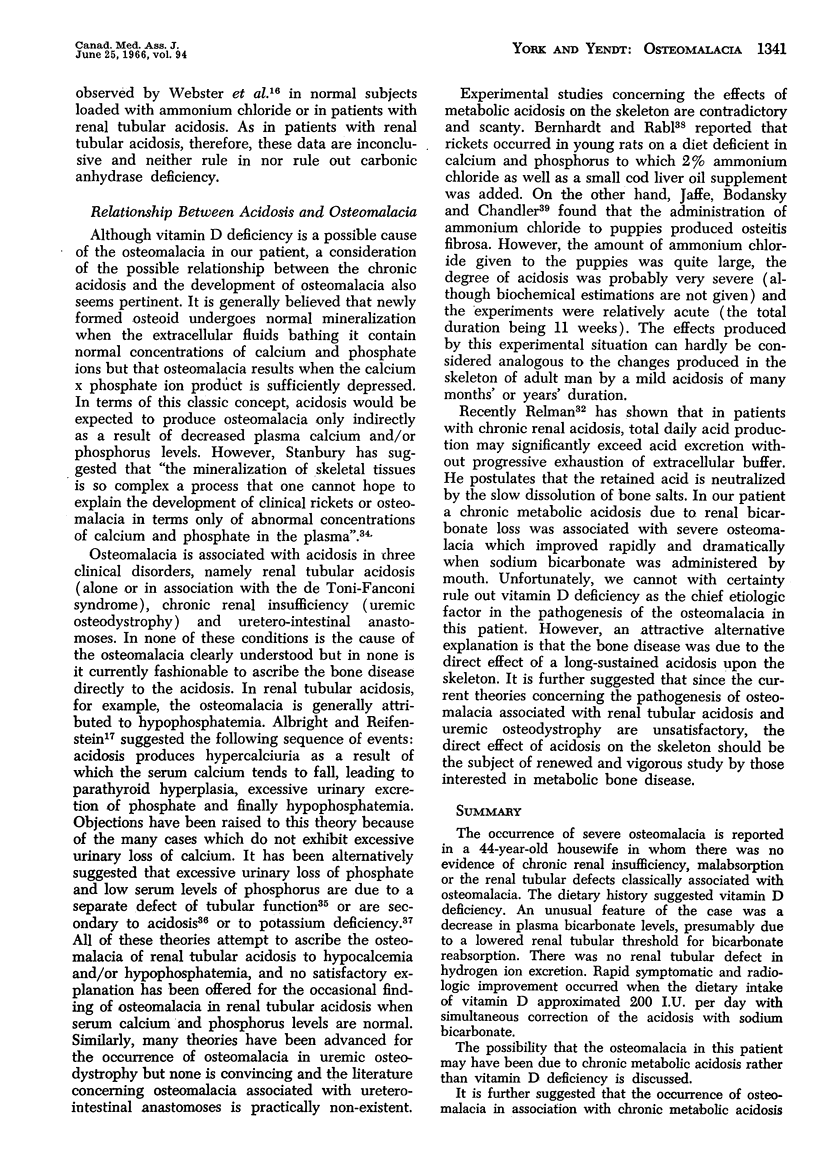
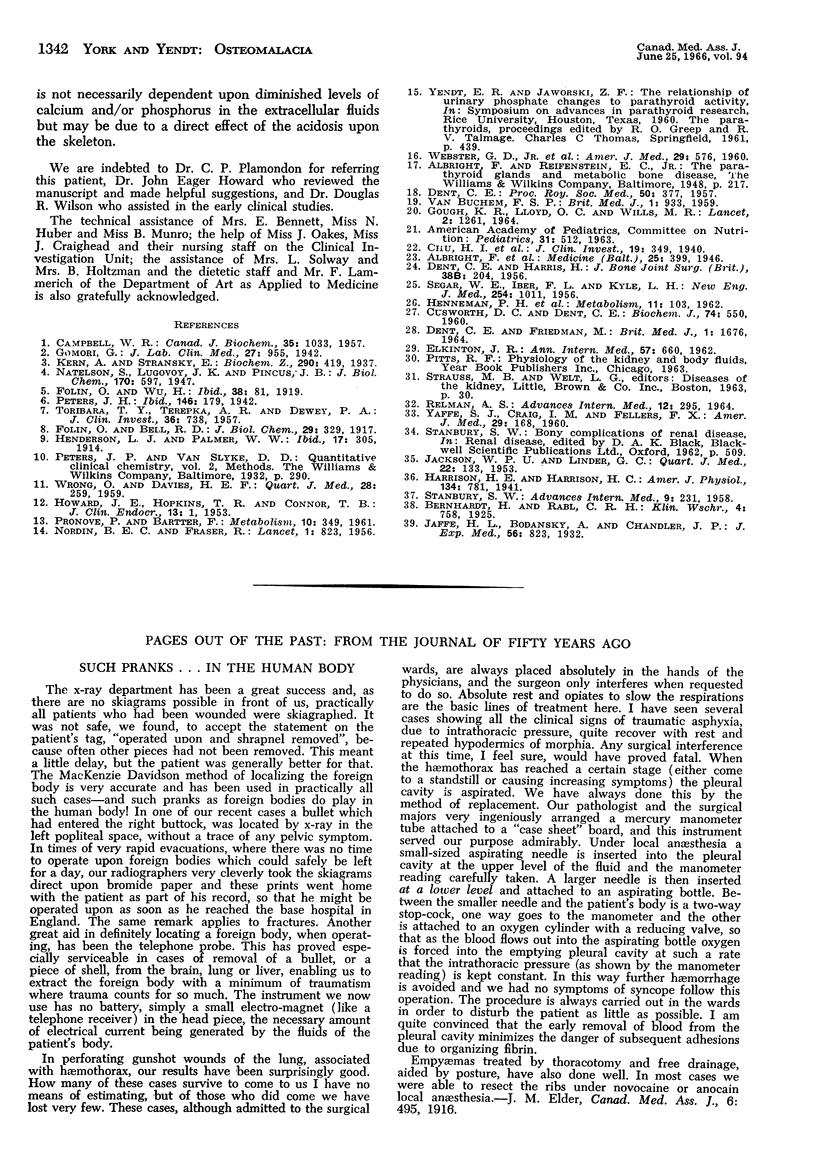
Images in this article
Selected References
These references are in PubMed. This may not be the complete list of references from this article.
- CAMPBELL W. R. The estimation of calcium and magnesium. Can J Biochem Physiol. 1957 Nov;35(11):1033–1046. [PubMed] [Google Scholar]
- CUSWORTH D. C., DENT C. E. Renal clearances of amino acids in normal adults and in patients with aminoaciduria. Biochem J. 1960 Mar;74:550–561. doi: 10.1042/bj0740550. [DOI] [PMC free article] [PubMed] [Google Scholar]
- DENT C. E., FRIEDMAN M. HYPOPHOSPHATAEMIC OSTEOMALACIA WITH COMPLETE RECOVERY. Br Med J. 1964 Jun 27;1(5399):1676–1679. doi: 10.1136/bmj.1.5399.1672-a. [DOI] [PMC free article] [PubMed] [Google Scholar]
- GOUGH K. R., LLOYD O. C., WILLS M. R. NUTRITIONAL OSTEOMALACIA. Lancet. 1964 Dec 12;2(7372):1261–1264. doi: 10.1016/s0140-6736(64)92735-7. [DOI] [PubMed] [Google Scholar]
- HENNEMAN P. H., DEMPSEY E. F., CARROLL E. L., HENNEMAN D. H. Acquired vitamin D-resistant osteomalacia: a new variety characterized by hypercalcemia, low serum bicarbonate and hyperglycinuria. Metabolism. 1962 Jan;11:103–116. [PubMed] [Google Scholar]
- JACKSON W. P., LINDER G. C. Innate functional defects of the renal tubules, with particular reference to the Fanconi syndrome; cases with retinitis pigmentosa. Q J Med. 1953 Apr;22(86):133–156. [PubMed] [Google Scholar]
- NORDIN B. E., FRASER R. A calcium-infusion test. I. Urinary excretion data for recognition of osteomalacia. Lancet. 1956 Jun 2;270(6927):823–826. doi: 10.1016/s0140-6736(56)91295-8. [DOI] [PubMed] [Google Scholar]
- PRONOVE P., BARTTER F. C. Diagnosis of hyperparathyroidism. Metabolism. 1961 May;10:349–363. [PubMed] [Google Scholar]
- RELMAN A. S. RENAL ACIDOSIS AND RENAL EXCRETION OF ACID IN HEALTH AND DISEASE. Adv Intern Med. 1964;12:295–347. [PubMed] [Google Scholar]
- SEGAR W. E., IBER F. L., KYLE L. H. Osteomalacia of unknown etiology. N Engl J Med. 1956 May 31;254(22):1011–1017. doi: 10.1056/NEJM195605312542201. [DOI] [PubMed] [Google Scholar]
- STANBURY S. W. Some aspects of disordered renal tubular function. Adv Intern Med. 1958;9:231–282. [PubMed] [Google Scholar]
- TORIBARA T. Y., TEREPKA A. R., DEWEY P. A. The ultrafiltrable calcium of human serum. I. Ultrafiltration methods and normal values. J Clin Invest. 1957 May;36(5):738–748. doi: 10.1172/JCI103477. [DOI] [PMC free article] [PubMed] [Google Scholar]
- VAN BUCHEM F. S. Osteomalacia; pathogenesis and treatment. Br Med J. 1959 Apr 11;1(5127):933–938. doi: 10.1136/bmj.1.5127.933. [DOI] [PMC free article] [PubMed] [Google Scholar]
- WRONG O., DAVIES H. E. The excretion of acid in renal disease. Q J Med. 1959 Apr;28(110):259–313. [PubMed] [Google Scholar]
- YAFFE S. J., CRAIG J. M., FELLERS F. X. Studies on renal enzymes in a patient with renal tubular acidosis. Am J Med. 1960 Jul;29:168–175. doi: 10.1016/0002-9343(60)90014-0. [DOI] [PubMed] [Google Scholar]



